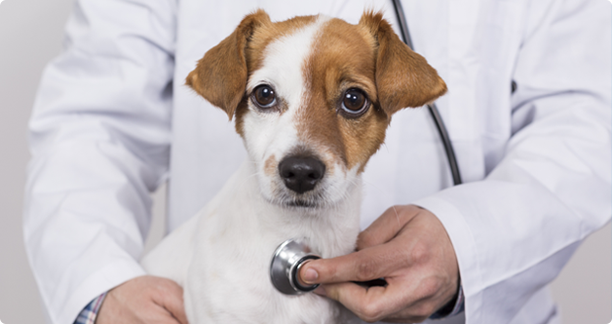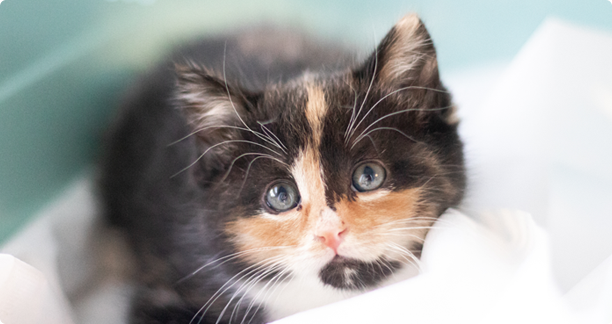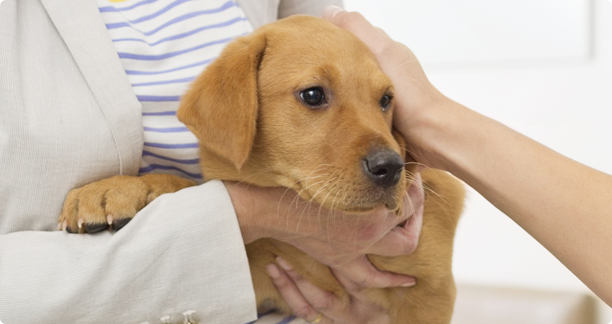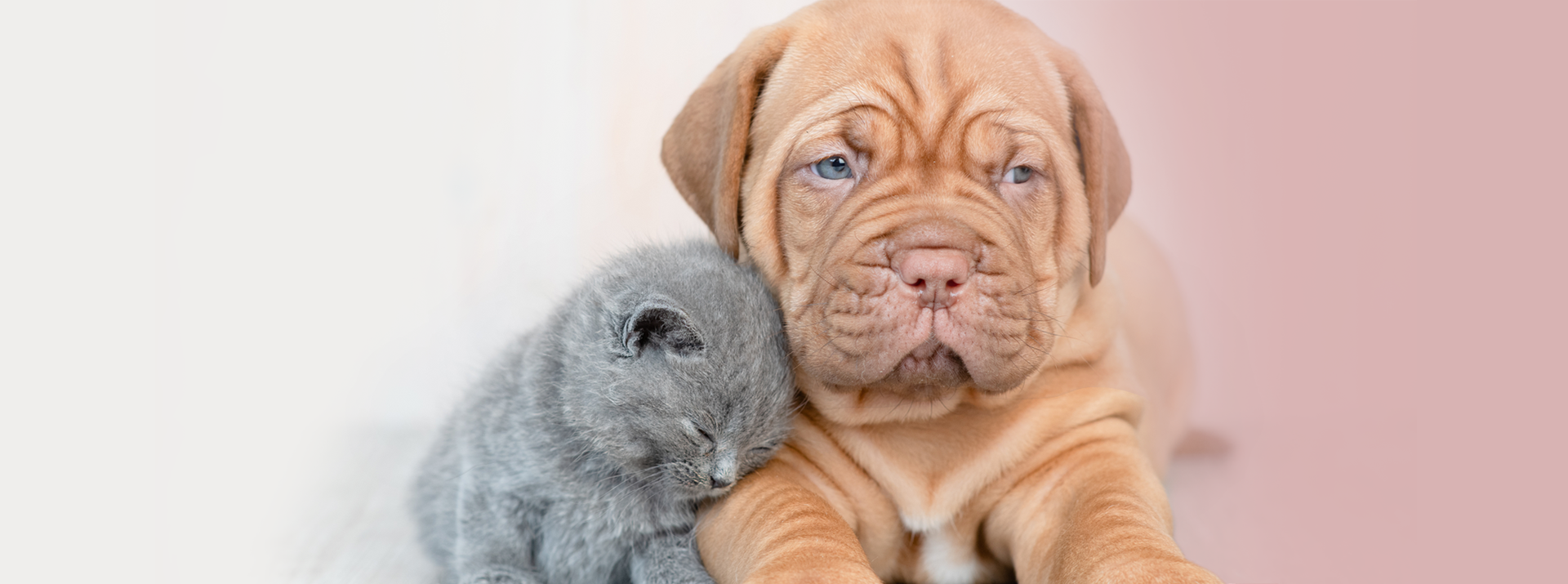You want your new fur baby to start life off right. At Lynn Animal Hospital, it's our veterinary team's mission to ensure that every new puppy and kitten in the community (and their parents) get an exceptional start at our veterinary practice.
We'd love to see you - just give us a call or book online to get started with your first exam today!
What Should I Bring to My Pet’s First Appointment?
We ask that you please bring the following items to your pet’s first veterinary exam. The more information our vets have, the better we can care for your puppy or kitten at Lynn Animal Hospital.
- Any veterinary records you may have
- Notes on foods and treats you offer at home
- A pet carrier or crate lined with old towels or shirts that smell like home
- A leash and collar or harness
- Their favorite toy
- Treats to reward your furry baby’s good behavior
- Any required forms provided by our veterinarians
- A stool sample (if requested by our vets)
- Any questions or concerns–so we can help you provide the best possible care for your new puppy or kitten!
For your first visit, please have puppies on a leash and kittens in a crate. This will ensure the most comfortable and safe experience for all!
New Puppy & Kitten FAQs
Caring for a new puppy or kitten can bring up lots of questions! Here are a few common ones we get from the pet parents in our community.
At what age should my puppy or kitten have their first vet exam?
Puppies and kittens should have their first veterinary exam at around 6 to 8 weeks of age. This initial check-up is crucial for setting a foundation for good health and early detection of potential health issues.
What is included in my puppy or kitten’s exam?
Our typical puppy or kitten exam includes a thorough physical assessment, vaccinations, deworming (common in young animals), and discussions about nutrition, training, and preventive care. We will also discuss screening for common congenital conditions and advice on spaying or neutering.
How often should I bring my puppy or kitten to the vet during their first year?
After your initial visit, puppies and kittens typically need follow-up exams every 3 to 4 weeks until they are about 16 weeks old. These visits are important for completing their vaccination series and monitoring their growth and development.
What vaccinations will my puppy or kitten need?
Puppies are typically vaccinated against parvovirus, distemper, canine hepatitis, and rabies. Kittens are typically vaccinated against feline distemper (panleukopenia), feline herpesvirus, calicivirus, and rabies. Your pet's vaccination schedule may vary based on local regulations and health.
Schedule Your Exam Now
What to Expect at Your Pet's First Exam
We know your pet’s first visit can be full of unknowns. At Lynn Animal Hospital, our entire team is here to walk you through and make it as comfortable as possible for your new companion!

Physical Exam
We will complete a gentle nose-to-tail physical exam to check your new puppy or kitten for any issues and perform any necessary tests to ensure your pet is free from various illnesses.

Vaccinations
One of the most important things you can do for your pet when they are young is to vaccinate them against common diseases. Our vets will discuss and determine the ideal vaccination schedule with you.

Parasite Control
We'll start them on an appropriate parasite protection regimen. We recommend that your puppy or kitten start a heartworm, flea, and tick preventative by no later than 8 weeks of age.

Spay or Neuter
We will discuss the health benefits of spaying or neutering your pet. Depending on your decision, we'll schedule an appointment for their procedure when they reach the proper age.
We've upgraded our online store!
Ordering your pet's favorite food and medicine is now easier than ever.
Order Food & Meds
Quick & Easy Registration

Please use the phone number and email you currently use for hospital communications to link your account!
Linked Pet Records & Rx

Your pet's prescriptions and records will be waiting for you!
Pawsome
Savings!

AutoShip discounts, promotions on your favorite products and more!


